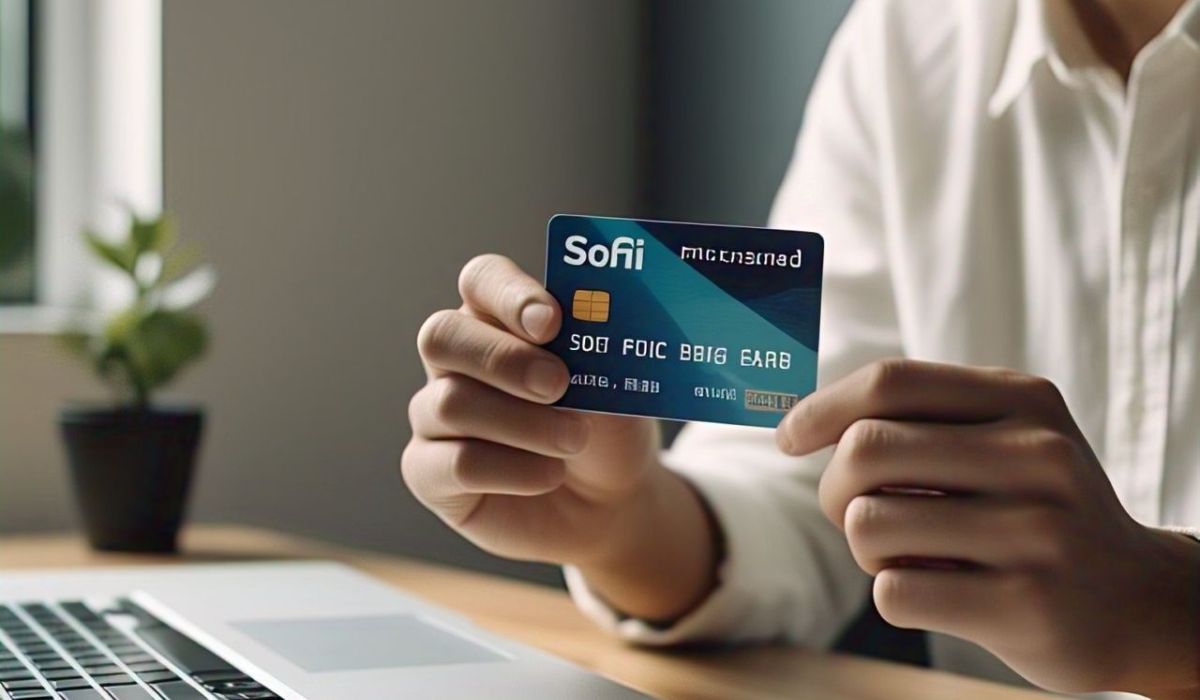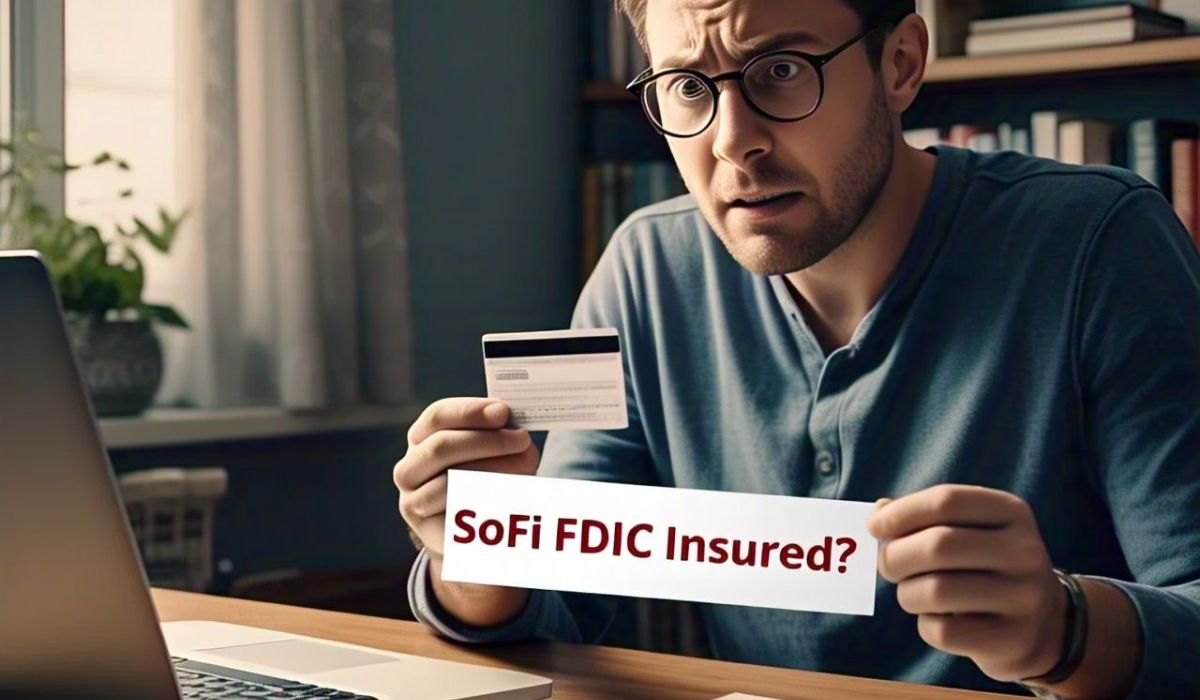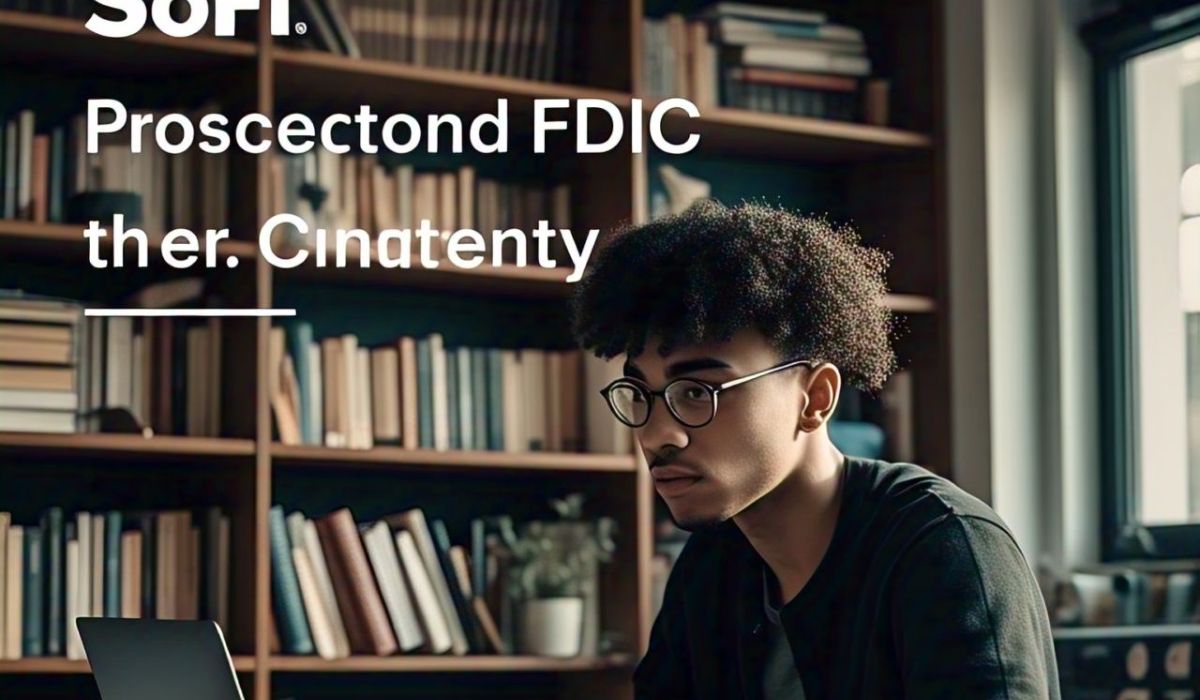When it comes to managing your finances, ensuring that your money is safe and secure is a top priority. That’s why many people turn to financial institutions and online platforms like SoFi, hoping to get the best deals on loans, savings accounts, and investments. But one key question always looms—Is SoFi FDIC insured?
In this article, we’ll explore this question in-depth. We’ll help you understand what FDIC insurance is, whether SoFi offers this coverage, and what that means for you as a user. Let’s dive into the details to clear up any confusion!
What Is FDIC Insurance?

The Federal Deposit Insurance Corporation (FDIC) is a government agency that protects your deposits in the event a bank fails. If you have an account at an FDIC-insured bank, your deposits are insured up to $250,000 per depositor, per bank, for each account ownership category.
FDIC insurance ensures that you don’t lose your hard-earned money if something goes wrong with the bank where you have your account. This coverage applies to a wide range of deposit accounts, such as savings accounts, checking accounts, and certificates of deposit (CDs).
Why Does FDIC Insurance Matter?
Imagine you’ve been saving for years to buy your dream home, only to discover one day that your bank has gone under and your money is gone. That’s a terrifying thought, right? This is where FDIC insurance steps in. Without it, your deposits could be at risk, and you might find yourself scrambling to recover lost funds.
FDIC insurance offers peace of mind knowing that even if your bank fails, your deposits are protected up to the limit. So, it’s not just a good idea—it’s a necessity for anyone who values financial security.
How SoFi Works and What It Offers

SoFi (short for Social Finance) is a popular online financial platform that offers a wide range of products, including student loans, personal loans, mortgages, investment options, and high-yield savings accounts. It’s known for its user-friendly app and innovative approach to finance. Whether you’re looking to invest or save, SoFi has established itself as a trustworthy platform for many users.
However, when you trust a company with your money, it’s important to know exactly how safe your deposits are. So, let’s take a closer look at whether SoFi is FDIC insured.
Is SoFi FDIC Insured?
Yes, SoFi is FDIC insured, but with an important caveat. SoFi itself is not a bank. It’s a financial technology company that partners with FDIC-insured banks to provide deposit accounts such as savings accounts. So, while SoFi isn’t a bank itself, the accounts offered through SoFi are covered by FDIC insurance through its partner banks.
Here’s how it works: SoFi works with a group of partner banks to offer services like high-yield savings accounts. The deposits in these accounts are insured by the FDIC, as long as they meet the eligibility requirements, such as being within the $250,000 insurance limit per depositor, per bank.
How Does SoFi Ensure Your Money Is Safe?

While SoFi isn’t a bank, it goes above and beyond to ensure that your money is secure. The platform follows strict security measures, including encryption technology to protect sensitive data. Additionally, SoFi’s partner banks, which hold the funds, are FDIC-insured, adding an extra layer of security for depositors.
In other words, even though SoFi doesn’t directly insure your funds, the partner banks that handle the deposits are FDIC insured. As long as you stick to the coverage limits, your money is protected.
SoFi and Partner Banks
SoFi partners with several FDIC-insured banks to provide its financial services. These banks are responsible for holding your deposits and providing the FDIC coverage. If a partner bank were to fail, the FDIC would step in to protect your funds, up to the insurance limit.
Some of the partner banks that SoFi works with include The Bancorp Bank and Cross River Bank, both of which are FDIC-insured.
What Types of Accounts Does SoFi Offer?
SoFi offers a variety of financial products, many of which are FDIC insured through its partner banks. Some of the most popular offerings include:
- SoFi Checking and Savings: This is a high-yield savings account and checking account combination. Your funds in this account are insured up to $250,000 per depositor through SoFi’s partner banks.
- SoFi Money: SoFi Money is a cash management account that combines the benefits of both a checking and savings account, offering FDIC protection on deposits.
- SoFi Invest: While SoFi Invest is not FDIC-insured (because it involves investment products like stocks and ETFs), your deposit accounts related to SoFi Invest, such as a linked savings account, are FDIC-insured through partner banks.
How SoFi Protects Your Funds Beyond FDIC
In addition to FDIC insurance, SoFi also uses state-of-the-art encryption and security protocols to safeguard your personal data and account information. The company is committed to protecting your funds by employing robust security measures to prevent unauthorized access and cyber threats.
Though FDIC insurance covers your funds in case of a bank failure, SoFi also provides other protections like account monitoring and fraud detection to help prevent any malicious activity on your accounts.
The Benefits of FDIC Insurance with SoFi
Here are the key benefits of FDIC insurance when using SoFi:
- Peace of Mind: Your deposits are insured up to $250,000 per depositor, per bank, providing financial protection if a partner bank fails.
- Security of Funds: With FDIC coverage, you can rest assured that your money is safe, even in the unlikely event of a bank closure.
- Widely Accessible: SoFi offers users easy access to FDIC-insured accounts like high-yield savings accounts, which can provide better returns than traditional bank accounts.
SoFi’s Alternatives to FDIC Insurance
While SoFi offers FDIC-insured deposit accounts, it also provides investment products that are not covered by FDIC insurance. For example:
- SoFi Invest: When you invest in stocks, ETFs, or other securities through SoFi, those investments are not FDIC-insured. They come with inherent market risks.
- Cryptocurrency: If you choose to invest in cryptocurrency through SoFi, those funds are also not protected by FDIC insurance.
What Happens If SoFi Is Not FDIC Insured?
If SoFi were not FDIC insured, your deposits would be at risk in the event of a bank failure or other financial collapse. That would mean you could potentially lose any money held in your account, which is why the FDIC coverage provided by SoFi’s partner banks is so important.
The good news is that SoFi’s partner banks are FDIC-insured, so your funds are safe within the prescribed limits. But it’s always wise to be cautious and understand the risks associated with any financial platform.
Customer Reviews: SoFi’s Reputation
SoFi has earned a solid reputation among its customers for offering user-friendly services, low fees, and excellent customer support. Many users are particularly impressed with the platform’s transparency and ease of use. However, as with any financial service, it’s important to do your research and assess whether it’s the right option for your financial needs.
Is SoFi Safe for Investing?
SoFi is considered safe for investing, but it’s crucial to understand that investing involves risk. While SoFi offers FDIC-insured deposit accounts, investment accounts like SoFi Invest are subject to market risks and are not protected by FDIC insurance.
When investing, it’s essential to have a strategy that aligns with your risk tolerance and financial goals. SoFi provides tools and resources to help users make informed investment decisions.
Conclusion
To wrap it up, SoFi is FDIC insured through its partner banks, which means your deposits in eligible accounts, such as checking and savings, are covered up to $250,000 per depositor, per bank. SoFi’s commitment to security, combined with FDIC insurance, provides an extra layer of protection for your money.
Whether you’re using SoFi for banking, saving, or investing, you can feel confident that your funds are protected by a trusted financial system. So, if you’re considering using SoFi, rest assured your deposits are in good hands!
FAQs
1. Is my money in SoFi checking accounts safe?
Yes, SoFi checking accounts are FDIC insured through its partner banks, protecting your deposits up to $250,000.
2. Does SoFi offer FDIC insurance on investment accounts?
No, SoFi investment accounts (stocks, ETFs, etc.) are not FDIC insured, as they are subject to market risks.
3. How can I ensure my SoFi account is FDIC insured?
To ensure FDIC insurance, make sure your deposits are held in SoFi accounts like checking or savings, which are covered by SoFi’s partner banks.
4. What should I do if my SoFi account is compromised?
Contact SoFi’s customer support immediately, and take steps to change passwords and secure your account. They have protections in place to assist you.
5. Can I get FDIC insurance on my SoFi Invest account?
No, FDIC insurance doesn’t cover investment accounts. The funds in SoFi Invest are subject to market risks.
For More Visit, rankshort
